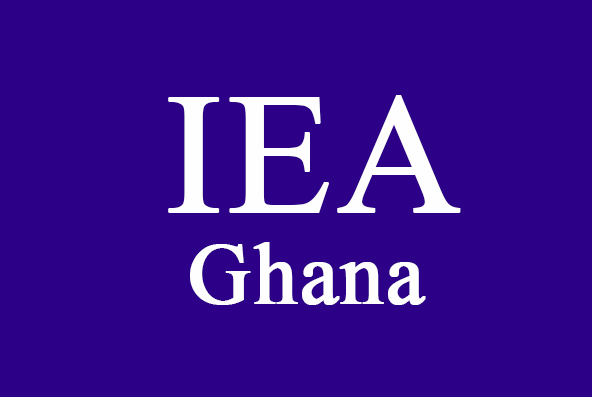The Institute of Economic Affairs (IEA) wants the economy to grow between 7% and 10% over the medium term, urging the government not to allow others such as the International Monetary Fund to impose unambitiously low growth rates on the country.
According to the IEA, the growth targets captured in Ghana’s Economic Credit Facility (ECF) programme is not ambitious enough.
"Ghana’s ECF programme contains macroeconomic data for the entire programme period, 2023-26, which is quite revealing. Real GDP [Gross Domestic Product] growth is projected to decline from 3.1% in 2022 to just 1.5% in 2023, recovering slightly to 2.8% in 2024 and then to 4.7% in 2025 and 5.0% in 2026. These growth projections are, however, not sufficiently ambitious”, it disclosed in its State of the Economy Report and the 2024 Budget Expectations.
“We have abundant natural and human resources that can be leveraged for higher growth. We can scale up public and private investment. We can import additional capital and technology that we lack through Foreign Direct Investment (FDI) and foreign labour. Put together, we should be able to grow the economy between 7-10% over the medium-term. We should not allow others to impose unambitiously low growth rates on us when we know we have the potential to grow much faster”.
It added Ghana only need to harness that potential through the right policies.
IMF data shows that Ghana recorded higher growth than the Sub-Saharan Africa (SSA) average between 2011 and 2021, which the IEA described as remarkable. In the period 2022-24, however, Ghana’s real GDP growth dipped below the SSA average, indicating that Ghana has been more severely impacted by external shocks than the rest of the SSA.
The IEA believes the government should institute policies to turnaround the economy to grow at higher rates.
Government revenue to GDP
The government revenue to GDP is projected in the ECF to increase from 15.7% in 2022 to 16.8% in 2023, 17.3% in 2024, 17.8% in 2025 and 18.7% in 2026. This implies an increase of 3.0 percentage points over the 4-year period, 2022-26.
It is being touted in the programme as a remarkable achievement, but the IEA said Ghana cannot celebrate this when its middle-income peers have revenue/GDP of 25-30%.
“We have repeatedly argued that we have the capacity to raise our revenue/GDP significantly within a short space of time. We only need to do the right things, such as introducing more innovative taxes, leveraging technology to expand and accelerate collections, roping the informal sector into the tax net, strengthening tax administration to stem evasion and improve compliance, plugging the several loopholes in the tax system and checking tax fraud and corruption”, it added
Latest Stories
-
Syria’s minorities seek security as country charts new future
34 minutes -
Prof. Nana Aba Appiah Amfo re-appointed as Vice-Chancellor of the University of Ghana
41 minutes -
German police probe market attack security and warnings
42 minutes -
Grief and anger in Magdeburg after Christmas market attack
43 minutes -
Baltasar Coin becomes first Ghanaian meme coin to hit DEX Screener at $100K market cap
2 hours -
EC blames re-collation of disputed results on widespread lawlessness by party supporters
2 hours -
Top 20 Ghanaian songs released in 2024
2 hours -
Beating Messi’s Inter Miami to MLS Cup feels amazing – Joseph Paintsil
2 hours -
NDC administration will reverse all ‘last-minute’ gov’t employee promotions – Asiedu Nketiah
3 hours -
Kudus sights ‘authority and kingship’ for elephant stool celebration
3 hours -
We’ll embrace cutting-edge technologies to address emerging healthcare needs – Prof. Antwi-Kusi
3 hours -
Nana Aba Anamoah, Cwesi Oteng special guests for Philip Nai and Friends’ charity event
3 hours -
Environmental protection officers receive training on how to tackle climate change
3 hours -
CLOGSAG vows to resist partisan appointments in Civil, Local Government Service
4 hours -
Peasant Farmers Association welcomes Mahama’s move to rename Agric Ministry
4 hours

